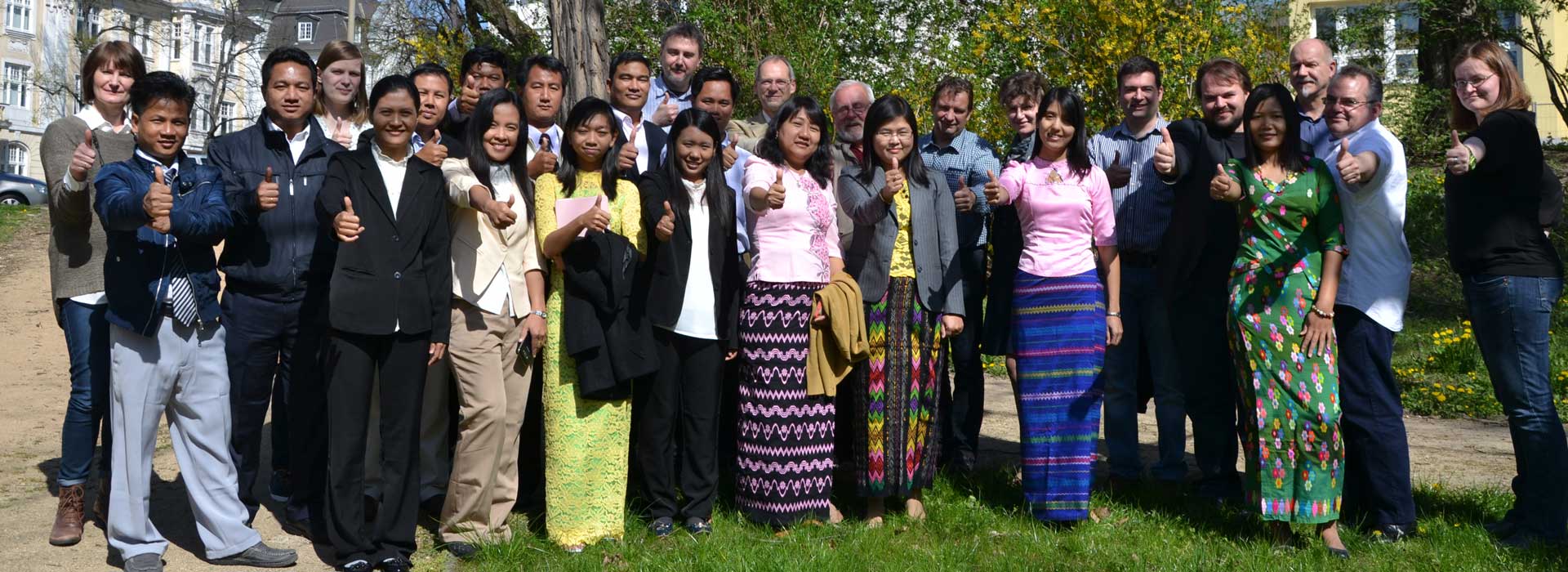 © Oliver Knauff
© Oliver Knauff
Thi Thi Shein bears a lot of responsibility in her job at a vocational college in Mandalay, Myanmar. As head of a further training department, she organises workshops, develops curricula, shares ideas and experience with colleagues on teaching methods and evaluates seminars. But her work is never without its difficulties. Her international long-term training course with AIZ not only taught her a great deal to help improve her situation, it also subsequently opened a new window of opportunity:
What is the biggest challenge in your work?
My job at the vocational college in Mandalay involves tackling a number of challenges. The difficulties my school faces are similar to those suffered by other vocational colleges in Myanmar. We have to deal with trainers who lack motivation and students with poor career orientation, not to mention out-of-date curricula and poor communication between schools and industry. And what we teach is often not aligned with the needs of industry.
Which training course did you attend at AIZ?
I took part in an international long-term training (ILT) course at AIZ in 2015. The course involved visits to vocational colleges, the chamber of industry and commerce, the Federal Institute for Vocational Education and Training (BIBB) and other institutions involved in TVET. The course taught me a lot about pedagogical and didactic teaching methodologies.

Of all the things you learned, which have helped you most professionally?
Before the ILT, I was just a teacher who used the chalk-and-talk approach in my lessons: I used to explain something then write it up on the board. After the training course, I am now comfortable with using various different styles of teaching. And I realise how important these different teaching methods and lesson plans are for all of our instructors.
Back at our college, I have now passed on the various teaching methods and ideas for classroom management to our teachers. I have developed curricula that focus not on a single topic, but on short-term modules with relevant content to enable teaching units to be evaluated more effectively. I’m now able to apply project management skills and teach other teachers to deal with difficult situations that may arise in their daily work.
Sometimes I moderate panel discussions or workshops, where I often put into practice the knowledge I acquired on the ILT course. So the training really equipped me for my job and I’m now able to perform my tasks and responsibilities more effectively. And the experience of getting to know international training systems is one that will stay with me for a long time.
What changed for you as a result of the course?
Quite a lot changed for me after the ILT course. I was promoted and given new managerial responsibilities. What I learned on the training course helps me in my new position: I’m better equipped to build bridges between the decision-making level and the implementation level.
Young managers from Myanmar – trained in Germany
On behalf of the Federal Ministry for Economic Cooperation and Development, GIZ initiated in 2015 an 8-month international long-term training course on TVET in Germany for TVET professionals in Myanmar. It was attended by 14 young TVET experts and managers, who had been selected by Myanmar’s ministries and a local NGO. The training course was organised and implemented by the Academy for International Cooperation (AIZ).
The course consisted of 12 modules, in which participants looked closely at the German TVET system: visits to institutions and companies with their own in-house-trainings made insights and opportunities for exchange possible. The young experts and managers had the opportunity to acquire more in-depth knowledge during placements with organisations, which were selected in line with their own specific interests. After returning to their institutions in Myanmar, they implemented the transfer projects they had devised in Germany, covering a spectrum of topics from curriculum development to the introduction of new teaching and learning methodologies.
Alumni from the training course in Germany are now working in managerial positions in Myanmar, where they can help shape the country’s TVET system, using the knowledge and skills they acquired within the scope of the project.
Contact:
Dr. Harry Stolte
harry.stolte@giz.de